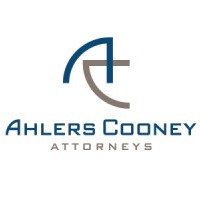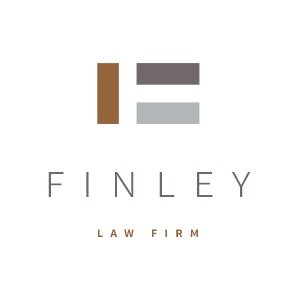Best Conveyancing Lawyers in Des Moines
Share your needs with us, get contacted by law firms.
Free. Takes 2 min.
Free Guide to Hiring a Real Estate Lawyer
List of the best lawyers in Des Moines, United States
About Conveyancing Law in Des Moines, United States
Conveyancing is the legal process involved in transferring property ownership from one party to another. In Des Moines, Iowa, conveyancing covers a range of activities, including preparing and reviewing contracts, carrying out title searches, facilitating financing arrangements, handling escrow accounts, managing closings, and ensuring compliance with local regulations. Property sales, purchases, and refinancing all fall under the umbrella of conveyancing. Because property transactions are significant financial commitments, understanding the legal landscape is crucial to protecting your interests throughout the process.
Why You May Need a Lawyer
There are many situations in Des Moines where seeking a lawyer's help for conveyancing is not just recommended but essential. Common scenarios include buying or selling real estate, refinancing your mortgage, transferring property to a family member, resolving disputes over property boundaries, handling issues revealed by title searches, dealing with liens or outstanding debts on a property, navigating probate sales, or handling transactions involving multiple parties. Legal guidance helps ensure that the transfer process is lawful, your rights are protected, and all obligations are met. Failing to engage a knowledgeable attorney can result in costly mistakes or delayed transactions.
Local Laws Overview
In Des Moines, conveyancing is affected by federal laws, Iowa state statutes, and specific local ordinances. Key aspects to consider include:
- Title and Deed Requirements: Iowa law requires the recording of property deeds with the relevant County Recorder, including Polk County for properties within Des Moines.
- Disclosure Obligations: Sellers must follow state-mandated disclosure requirements, informing buyers about property condition, defects, and known issues such as lead-based paint in older homes.
- Homestead Rights: Iowa provides strong homestead protections, and these must be accounted for in any conveyancing process involving a primary residence.
- Abstract of Title: Unique to Iowa, the abstract system tracks the entire history of a property’s title and encumbrances. Most transactions require an updated abstract reviewed by an attorney.
- Real Estate Transfer Tax: The state and county may levy transfer taxes, and exemptions may apply in specific circumstances.
- Attorneys’ Role: Unlike some states, attorneys play an important role in Iowa’s conveyancing system, especially relating to the review of abstracts, deed preparation, and oversight of closings.
- Local Ordinances: Zoning laws, building codes, and other local regulations in Des Moines may affect your intended use of the property.
Frequently Asked Questions
What is included in the conveyancing process in Des Moines?
The process generally includes contract drafting and review, title examination, abstract updating, negotiating repairs or terms, addressing liens, and conducting the closing. It ensures legal ownership is properly transferred and all necessary legal requirements are satisfied.
Is it mandatory to have a lawyer for conveyancing in Des Moines?
While not always legally required, it is highly recommended due to Iowa’s abstract system and local regulations. Most lenders and title companies will insist on attorney involvement, especially for reviewing abstracts and preparing documents.
What is the abstract of title, and why is it important?
The abstract of title is a comprehensive summary of the legal history of a property. It is unique to Iowa and essential for establishing clear ownership. Attorneys review these abstracts for issues before closing the transaction.
What disclosures are sellers required to make?
Sellers must disclose material defects, property condition, and potential hazards such as the presence of lead-based paint in homes built before 1978, pursuant to both state and federal law.
Are there specific taxes or fees involved with conveyancing in Des Moines?
Yes, Iowa and Polk County impose real estate transfer taxes, recordation fees, and sometimes additional local charges. These should be accounted for in the transaction planning process.
How long does the conveyancing process typically take?
The process can take from a few weeks to a few months, depending on title complexities, negotiations, and financing arrangements. Delays often arise due to title issues or disputes over property condition.
Can I handle conveyancing by myself?
Although individuals can technically manage simple transfers, the risk of error, missed liens, or incomplete disclosures means most experts strongly advise engaging a lawyer, especially with large financial stakes.
What happens if there is a dispute during the transaction?
Disputes over boundaries, defects, or contract terms can result in stalled transactions or litigation. An attorney can help resolve these disputes efficiently, often before they escalate to court proceedings.
What if problems are found during the title search?
Issues like outstanding liens or unclear ownership history must be resolved before closing. Your attorney will identify problems and recommend solutions, which may include negotiation or legal action if required.
Are there protections for buyers in Des Moines?
Yes, Iowa law and local practices provide protections for buyers, including mandatory seller disclosures, escrow arrangements, and requirements for clear title before transfer. Legal representation further ensures your interests are safeguarded.
Additional Resources
Several organizations and governmental bodies can provide more guidance on conveyancing issues in Des Moines:
- Iowa State Bar Association - Public Information Section
- Polk County Recorder’s Office - Deed Recording and Property Records
- Iowa Department of Inspections and Appeals - Housing Division
- Iowa Legal Aid - Legal Resources for Qualifying Individuals
- United States Department of Housing and Urban Development (HUD) - Homebuyer Programs and Resources
- Des Moines City Planning and Zoning Department - Zoning and Land Use Information
Next Steps
If you need legal assistance with conveyancing in Des Moines, consider the following actions:
- Gather all documents related to your property transaction, including purchase agreements, prior deeds, titles, and any correspondence.
- Identify your goals for the transaction, including timelines and any special concerns.
- Contact a local real estate attorney familiar with Iowa’s unique abstract system and local laws to schedule a consultation.
- Ask about attorney fees, services offered, and anticipated timelines to ensure you understand the process.
- If you are unsure where to begin, use the resources listed above to seek referrals or general information.
Early involvement of a qualified attorney helps prevent costly errors and ensures your property transaction in Des Moines runs smoothly and legally compliant.
Lawzana helps you find the best lawyers and law firms in Des Moines through a curated and pre-screened list of qualified legal professionals. Our platform offers rankings and detailed profiles of attorneys and law firms, allowing you to compare based on practice areas, including Conveyancing, experience, and client feedback.
Each profile includes a description of the firm's areas of practice, client reviews, team members and partners, year of establishment, spoken languages, office locations, contact information, social media presence, and any published articles or resources. Most firms on our platform speak English and are experienced in both local and international legal matters.
Get a quote from top-rated law firms in Des Moines, United States — quickly, securely, and without unnecessary hassle.
Disclaimer:
The information provided on this page is for general informational purposes only and does not constitute legal advice. While we strive to ensure the accuracy and relevance of the content, legal information may change over time, and interpretations of the law can vary. You should always consult with a qualified legal professional for advice specific to your situation.
We disclaim all liability for actions taken or not taken based on the content of this page. If you believe any information is incorrect or outdated, please contact us, and we will review and update it where appropriate.













